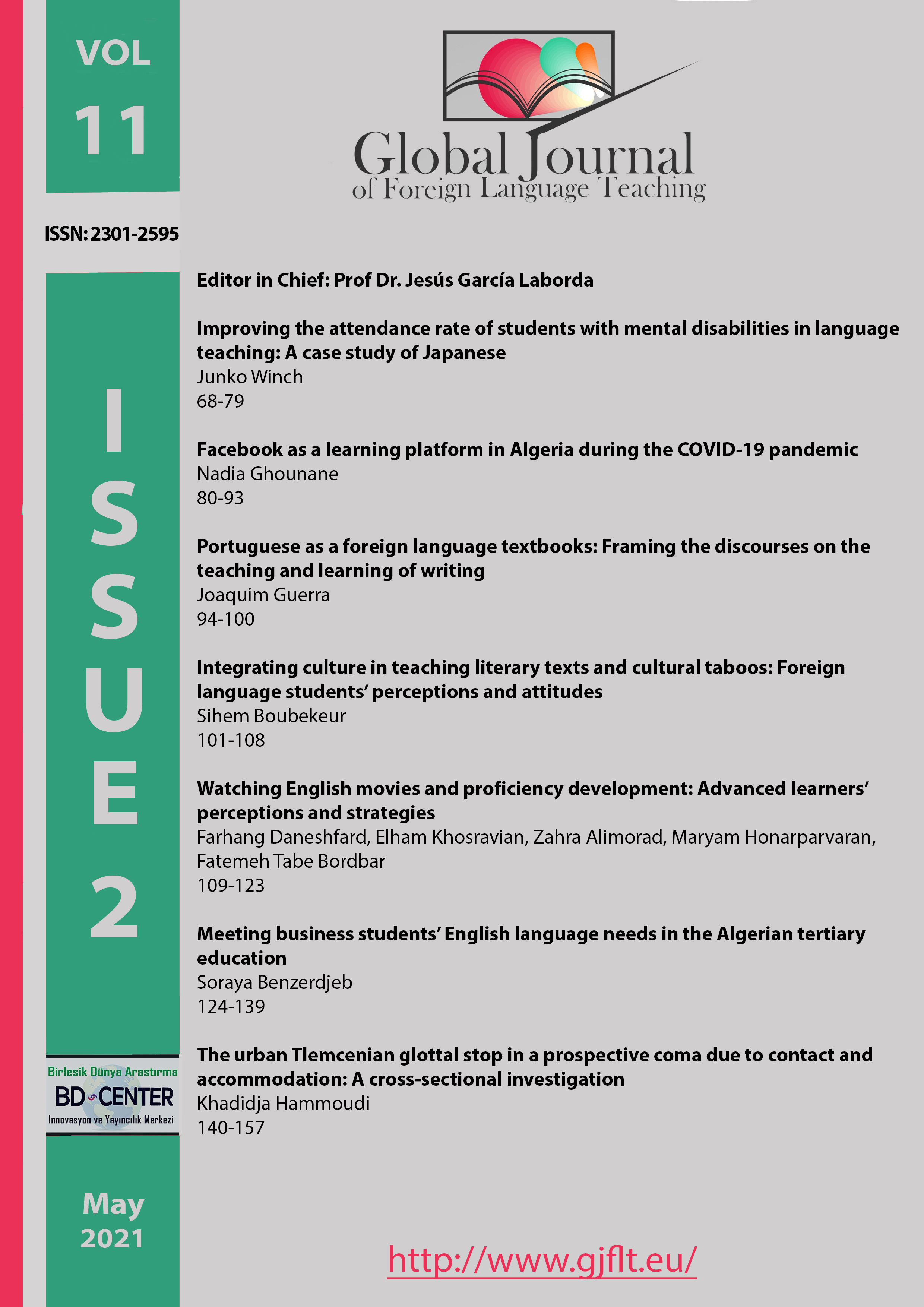Portuguese as a foreign language textbooks: Framing the discourses on the teaching and learning of writing
Main Article Content
Abstract
Textbooks are a resource that is widely used in language classes. For this reason, they are also one of the principal topics in research on the field of didactics. Several studies were conducted about Portuguese as mother tongue textbooks, but there is a lack of researches and information concerning the textbooks of Portuguese as a foreign language. In this study, the researcher analyses the discourse of the authors/editors in the ‘opening texts’ of textbooks for (European) Portuguese as a foreign language, for levels A1 and A2 of the Common European Framework of Reference. The study shows that writing competence is relatively neglected by the authors, and infers that might reflect the way that teaching and learning activities for writing are put into practice. Further research will allow to verify if there are indeed activities for learning to write and how they were thought out and organised.
Keywords: Language teaching, writing competencies, Portuguese, foreign language, textbooks, writing competencies.
Downloads
Article Details

This work is licensed under a Creative Commons Attribution 4.0 International License.
Authors who publish with this journal agree to the following terms:- Authors retain copyright and grant the journal right of first publication with the work simultaneously licensed under a Creative Commons Attribution License that allows others to share the work with an acknowledgement of the work's authorship and initial publication in this journal.
- Authors are able to enter into separate, additional contractual arrangements for the non-exclusive distribution of the journal's published version of the work (e.g., post it to an institutional repository or publish it in a book), with an acknowledgement of its initial publication in this journal.
- Authors are permitted and encouraged to post their work online (e.g., in institutional repositories or on their website) prior to and during the submission process, as it can lead to productive exchanges, as well as earlier and greater citation of published work (SeeThe Effect of Open Access).
